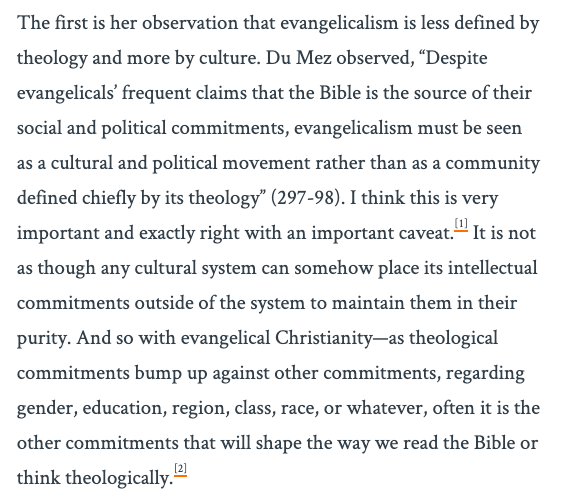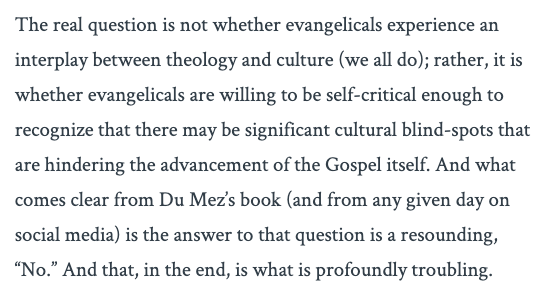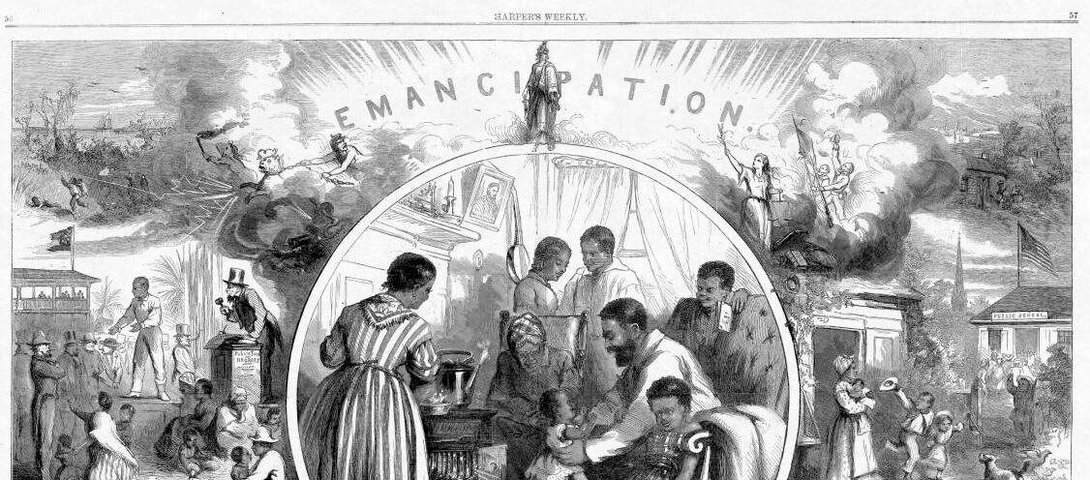
1/ I agree with @SeanMLucas (albeit as a not-historian) that this is among the most important contributions of @kkdumez's book. 



2/ One of evangelicalism's most "significant cultural blind-spots" is found in its refusal to see itself as a culture, its stubborn insistence that it just *is* its theological commitments, unmediated and distinct from any institutional, cultural, or political embodiments.
3/ This self-understanding continually allows (and historically has allowed) evangelicals to distance themselves from the social malignancies of the movement. Those are always aberrations—"not us." Alas, there is no "us" except that which identifies with a disembodied confession.
4/ As long as evangelicalism persists in this self-image, it will not only continue in blindness; it will also traffic and shelter terrible evils, as it already has. And it will continue to gaze in bewilderment, disavowal, or denial at events such as that witnessed on Jan 6th.
5/ We need to be talking about this much, much more.
• • •
Missing some Tweet in this thread? You can try to
force a refresh







